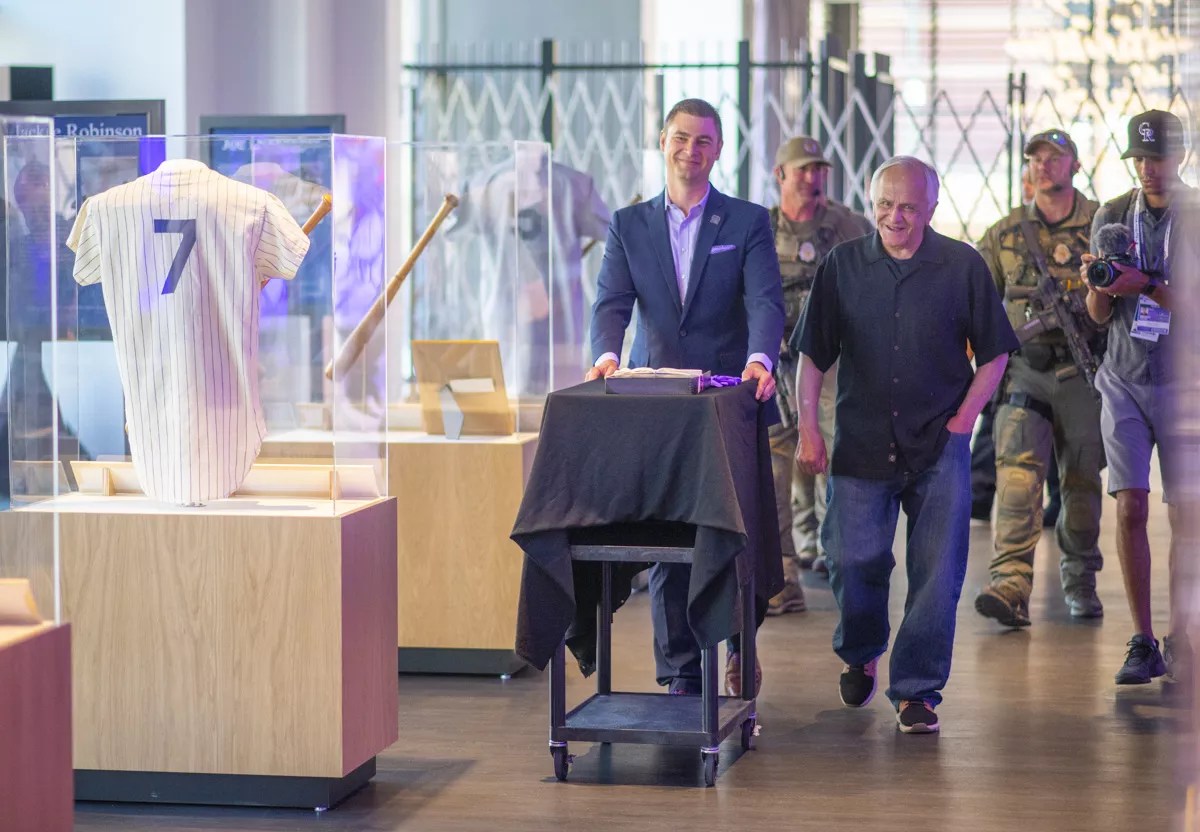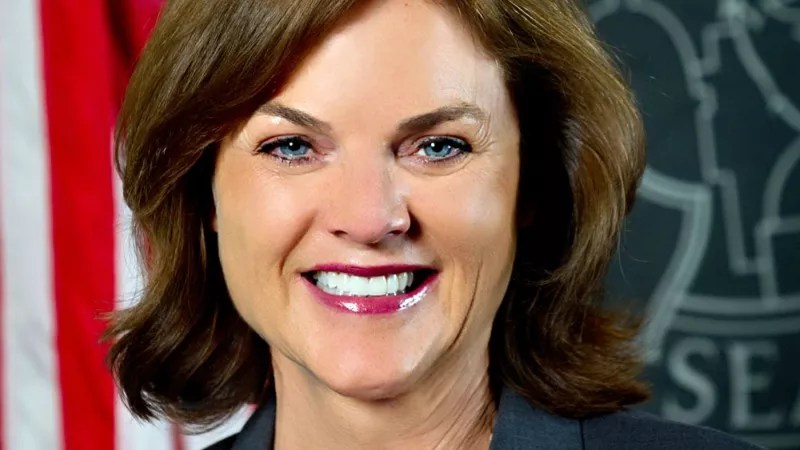
McNichols Building

Audio By Carbonatix
When Jason Hanson goes to a new city, he always goes to the city-specific museum so he can discover how that place came to be and get some insight into its identity.
In Denver, however, no such museum exists. Hanson, chief creative officer and director of interpretation and research for History Colorado, thinks it’s time to change that.
“I started noticing that nearly everywhere I went, peer cities around the country – St. Louis, Seattle, New York City, Chicago – most major cities around the country that I have been to, and then virtually every city in Colorado from Colorado Springs to Redstone, has its own museum,” he tells Westword. “Denver doesn’t.”
Along with former Denver City Council member Kendra Black, Hanson hopes to form a coalition that will spearhead the creation of a new museum, complete with artifacts and interactive elements such as those found at the Museum of History and Industry in Seattle and the City Museum in St. Louis, where there’s an adult-sized playground.
“I have worked in a public-history space for most of my career, specifically in museums for a good chunk of it,” Hanson says. “I have a good sense of what people want out of museums, how the field is changing and how museums can be a constructive force in their communities.”
Building a Denver facility is a personal passion project of Hanson’s outside his work with History Colorado.
Like many people, when the COVID-19 pandemic hit, he suddenly found himself at home with a little more time to think about interesting projects, such as this one. He dove into the work – casually polling people about the concept of a local history museum and finding that most residents support the idea.
Black joined the effort last summer after talking with Hanson about it. The two had met back in Black’s days working in the history department at the University of Colorado Denver. Since their meeting last year, they have both devoted their personal time to the cause.
“History is really important,” Black says. “People need to know how we got to where we are today to make sure that we make better decisions moving forward. … There are just so many stories people don’t know, and everyone should know them. There are good ones and there are really bad ones, but we need to learn from all of them.”
Stories like the creation of Denver’s former Chinatown, the KKK’s rule in the city and the Little World Series of the West are perfect examples.
Over the years, there have been city connections to nationwide change, including Barney Ford and Black suffrage, and Ellis Meredith and women’s right to vote. “Some people may know a few stories here and there, but there’s no central location for all those stories,” Black says.
She and Hanson will continue to ask Denverites what they want from a museum as their concept progresses. So far, they’ve found that people want an honest depiction of Denver’s past, including the ugly parts.
“If you know the history here, you walk around the city and it’s almost like reading a storybook,” Hanson says. “The history is alive everywhere. That’s something that is really fun, and something that we can share and give more people the opportunity to do.”

Jason Hanson (left) is pursuing a Museum of Denver on his own time.
Evan Semón
Back in 2019, the city launched an Office of Storytelling with the aim to rewrite “Denver’s history one untold story at a time,” according to its website. Since then, it’s produced numerous short films – and even a few documentaries – about lesser-known city history. That could be an asset for the museum, Black notes, as the videos can be used for exhibits and can amplify the office’s work.
It’s common for history museums to be involved in public-private partnerships. For example, the Chicago History Museum is chartered by the state legislature and receives some funding from the city, but it’s mainly funded privately.
History Colorado itself is a public-nonprofit partnership – and the Colorado Springs Pioneers Museum receives city funds and does its own fundraising. All have budgets in the millions. Funding is something Black says the Denver group is still working on.
One idea that would save startup money through a public-private partnership is to transform the McNichols Building at Civic Center Park into a museum.
Located at 144 West Colfax Avenue, the building is operated by Denver Arts & Venues. It’s been around since 1909 and was once home to a Carnegie Library before being passed off to the Denver Water Board. It reopened as a cultural center in 2012 and got a renovation in 2016 to upgrade the restrooms and expand the event spaces.
Could its next chapter be as a museum? Hanson certainly thinks so.
“McNichols is a great building,” he says. “Arts & Venues are doing some really great things with it, but I think this would just be one of the best possible uses we could give such a historic building in the heart of Denver and Civic Center.”
Black tells Westword that she believes Civic Center should be a cultural touchstone for the city, given all the government buildings nearby and other museums in the Golden Triangle area. A facility focused on Denver’s history would fit with the goals outlined in the 2022 Civic Center Next 100 plan for which she was on the committee, she adds.

Denver City Councilwoman Kendra Black is down for a Museum of Denver.
“It would actually be a great place for a museum and there could still be event spaces there,” Black says. “We would envision opening up to the park with activities and food and drink so that we would bring people into the park and really engage the park.”
The people pushing for a Museum of Denver haven’t gotten the chance to meet with Mayor Mike Johnston yet. Before Michael Hancock left office, they discussed the idea with him and he was supportive – even suggesting the possibility of using McNichols.
Black says they also talked to the outgoing executive directors of Parks & Recreation and Arts & Venues, Happy Haynes and Ginger White. “We are going to be meeting with Mayor Johnston as well as soon as he has a new parks director and a new director of arts and venues,” Black says. “We’ll be talking to them just to see if they agree that we should explore this possibility.”
While it’s still a fresh idea, Black and Hanson hope to have those meetings over the next few months.
Even if McNichols isn’t the right fit, the pair tell Westword that their plan will still move forward. They have been meeting with other organizations and community members to compile an executive working group that includes representatives from the Downtown Denver Partnership, Visit Denver, the Denver Women’s Commission, Civic Center Conservancy, the Molly Brown Museum and more.
The group meets every two months to work on their pitch.
Hanson says he feels optimistic that the Denver museum idea will come to fruition. “I rarely meet anyone who doesn’t immediately light up when I mention this,” he tells Westword. “You can just see the light bulb go off, ‘Of course. Why haven’t we thought of this sooner?’ I’m also really optimistic because we have a great, growing group of people working on this.”
Black says the coalition is looking at planning a pop-up exhibit in 2026, which will be the 150th anniversary of Colorado’s statehood. That could be at McNichols, should it become a possible final location.
In that case, a pop-up would give people the chance to see what a Denver museum could provide, Hanson says.
“History museums are the institutions that make a claim on identity,” he explains. “They tell us who we are and how we got this way and I think that’s a really important thing for a community to have, especially a community as vibrant and diverse as Denver.”
,